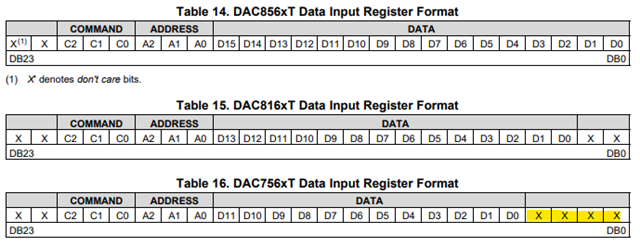Other Parts Discussed in Thread: ADS1256, , , DAC7562T, DXP, DAC63204EVM
Tool/software:
I have the MMB0 operational with ADS1256 ADC but I would like to use the DAC8562TEVM with the same MMB0 card.
What is the SW I need to install to make this combination operational?
Also, I intend to replace the DAC8562T on the eval card with the DAC7562T. Would this require different/additional SW?
Please provide the links to the SW resources - if available



 , i get this:
, i get this: 